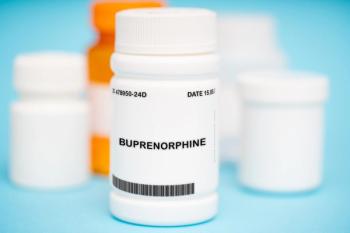
U.S. appeals court upholds Rx price reduction law in Maine
Revived Maine price law leaves Rx makers and pharmacies wary
GOVERNMENT and LAW
U.S. appeals court upholds Rx price reduction law in Maine
If patients are harmed by Maine's prior-authorization requirement, aimed at forcing drug manufacturers to give the state rebates, then the Pharmaceutical Research & Manufacturers of America (PhRMA) can return to court. But until then, Maine's closely watched prescription price reduction law stands, the First U.S. Circuit Court of Appeals ruled.
The three-judge panel also gave PhRMA another route to overturn the year-old, never-implemented law. If the state's "best efforts" to negotiate initial rebates that are at least equal to those the manufacturers provide Medicaid become "coercive or otherwise inappropriate," PhRMA can mount another legal challenge.
Marjorie Powell, PhRMA's assistant general counsel, expressed disappointment with the decision. She said prior authorization would put patients "at the back of the health-care line when it comes to state-of-the-art medicines." PhRMA has not yet decided on its legal options.
Maine Gov. Angus King called the decision "great news for the 325,000 Maine people eligible" for the program. "We're talking about a 20% to 30% reduction in price to every citizen in Maine who's not covered by a drug program in their health insurance or in the Medicaid program."
Bernie Horn, policy director for the Center for Policy Alternatives, which has been working with state legislators to reduce Rx prices, said legislation similar to Maine's has been introduced in 27 states.
But Maine R.Ph.s aren't cheering, and their colleagues in copycat states probably shouldn't either. The rebates will go into a fund to reimburse pharmacies at average wholesale price (AWP) minus 6% plus a $3 filling fee and a $3.35 professional fee. The state will set the discounted price pharmacies can charge. If additional negotiations don't produce rebates comparable to those drugmakers give Veterans Affairs, the state can set the maximum retail prices pharmacies can charge.
"These state programs are obviously good for the people, but they're taking money right out of the pocket of retail pharmacists," said Robert Morrissette, president of the Maine Pharmacy Association (MPA).
Morrissette said most pharmacists and state officials never expected the Maine Rx Program for the uninsured who are not covered by Medicaid to survive PhRMA's legal assault. So, the state obtained a waiver from the Department of Health & Human Services in the waning days of the Clinton Administration to expand Medicaid substantially to cover people up to 300% of the federal poverty level, or about $53,000 for a family of four.
That separate program, dubbed Healthy Maine Prescriptions, was scheduled to start June 1. Pharmacy reimbursement was set at AWP minus 10% plus a $3.35 dispensing fee. The state estimates enrollees will save up to 25% off "full retail price."
Morrissette said no one is sure when the newly revived Maine Rx Program will relaunch or how it will fit in with Healthy Maine Prescriptions. But state lawmakers already have rebuffed MPA's efforts to boost the dispensing fee to $6.50. "Pharmacists are sacrificing" about 10% of their incomes to fund these programs, he said. Many R.Ph.s are wondering whether they can survive.
Michael F. Conlan
Mike Conlan. U.S. appeals court upholds Rx price reduction law in Maine. Drug Topics 2001;11:46.
Newsletter
Pharmacy practice is always changing. Stay ahead of the curve with the Drug Topics newsletter and get the latest drug information, industry trends, and patient care tips.























